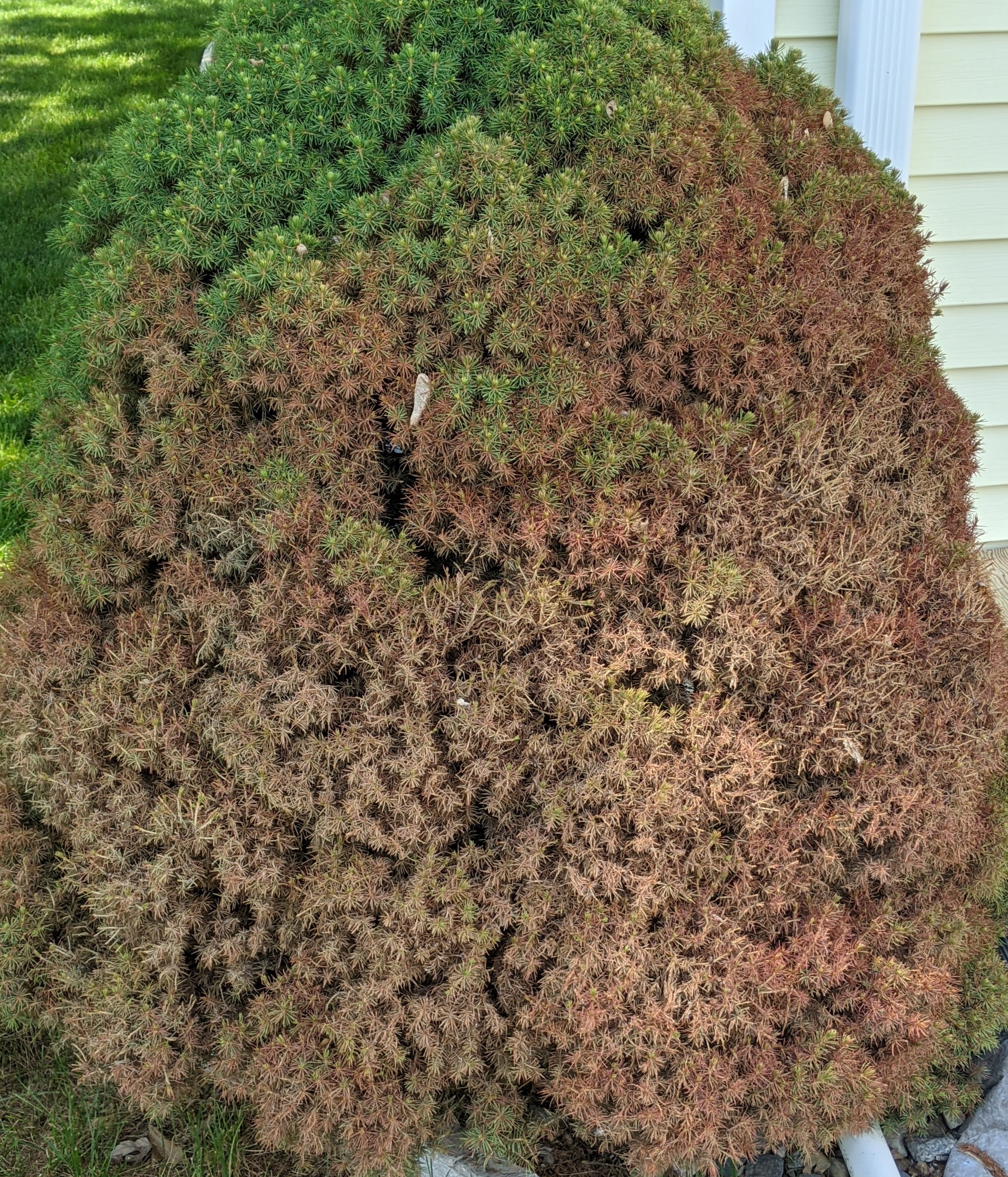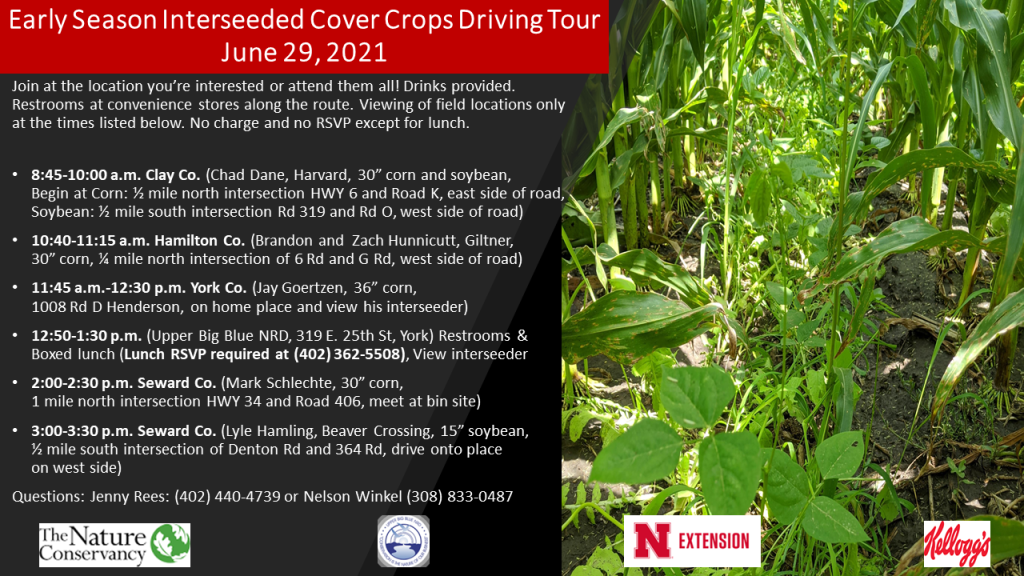| Upcoming Events: June 23: SCAL Weed Management Field Day, 8:30 a.m. Reg. 9:00-1 p.m. program, Clay Center, RSVP required: https://agronomy.unl.edu/fieldday June 29: Interseeded Cover Crops into Corn and Soybean Driving Tour, lunch RSVP 402-362-5508, Questions: Jenny Rees 402-440-4739 or Nelson Winkel 308-833-0487 June 30: Glyphosate resistant palmer amaranth field day, 8:30 Reg. 9:00-1 p.m. program, Carleton, RSVP Required: https://agronomy.unl.edu/palmer June 30: 2021 Stocker/Yearling Summer Meeting and Tour, 9:30 a.m.-4:30 p.m. MDT, Nenzel Community Bldg, Nenzel June 30: Haskell Ag Lab Family Field Day, Concord |
Crop Update: Last week was just a tough week for most I talked with between the heat, irrigation starting, and the various problems observed in fields. Incredible the temperature swings in 4 months with the record lows in February and record highs in June! Installed moisture sensors most of the week and didn’t find a lot of moisture in the top 18” in most area fields. We don’t like irrigating soybean this early due to potential disease issues and lodging. I was recommending it too for herbicide activation and to get soybeans growing again after various issues with herbicide carryover, off-target movement, flaming, etc. observed this past week. But soybean won’t need to continue being irrigated depending on soil moisture and rooting depth. Hopefully they will grow and we can get to canopy soon.
Early Season Interseeded Cover Crop Driving Tour June 29 will provide an opportunity for interested individuals to view interseeded fields at a location closest to them or to view as many locations as they would like. No charge. RSVP is only required for those desiring a boxed lunch; please RSVP for lunch at (402) 362-5508. The boxed lunch is sponsored by The Nature Conservancy and it will be located at the Upper Big Blue NRD (UBBNRD) in York. There will be no restrooms at the field locations; restrooms can be used at convenience stores along the tour route or at the UBBNRD. Viewing of the fields will occur only at the times listed to allow for the cooperators to tour the other locations. Grateful to these cooperators for conducting these interseeding studies! Questions: Jenny Rees (402) 440-4739 or Nelson Winkel (308) 833-0487.
- 8:45-10:00 a.m. Clay Co. (Chad Dane, Harvard, 30” corn and soybean, Begin at Corn: ½ mile north intersection HWY 6 and Road K, east side of road, Soybean: ½ mile south intersection Rd 319 and Rd O, west side of road)
- 10:40-11:15 a.m. Hamilton Co. (Brandon and Zach Hunnicutt, Giltner, 30” corn, ¼ mile north intersection of 6 Rd and G Rd, west side of road)
- 11:45 a.m.-12:30 p.m. York Co. (Jay Goertzen, 36” corn, 1008 Rd D Henderson, on home place and view his interseeder)
- 12:50-1:30 p.m. (Upper Big Blue NRD, 319 E. 25th St, York) Restrooms & Boxed lunch (Lunch RSVP required at (402) 362-5508), View interseeder
- 2:00-2:30 p.m. Seward Co. (Mark Schlechte, 30” corn, 1 mile north intersection HWY 34 and Road 406, meet at bin site)
- 3:00-3:30 p.m. Seward Co. (Lyle Hamling, Beaver Crossing, 15” soybean, ½ mile south intersection of Denton Rd and 364 Rd, drive onto place on west side)
Ornamental Evergreens: Looked at and received a number of calls regarding ornamental evergreens such as the ‘Fat Albert’ varieties turning brown/purple/pink on the south sides. Winter injury is showing up on them. All the trees I looked at had had heavy spidermite pressure at one time as well. The spidermites may have been a secondary problem with the additional tree stress. Fortunately, most trees I looked at had new buds appearing on twig tips. The discolored and dead needles won’t be replaced. For these small trees/bushes, you can use heavy streams of water to remove spidermites that are still active on trees. Watering (but not overwatering) can also help with their recovery.
Vegetable Gardens: Also received a number of garden questions. Seeing a lot of scorch due to heat, overhead watering in the heat (try to water at base of plants), and leaf curling due to uneven watering.





































